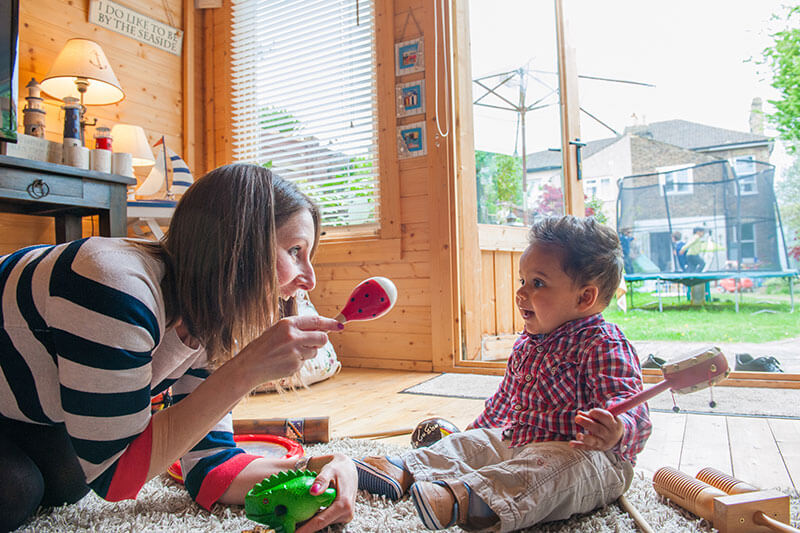Financial Assistance

When a child is placed in your home, you will begin receiving a monthly stipend to cover the cost of care for that child. If you are not yet approved as a Resource Family but a child has been placed in your home, you will receive temporary funding for up to a year, or until you are approved. Learn more about Resource Family Funding by visiting the links below.
If you are not receiving funding or are receiving the wrong amount of funding, please call the Resource Family Helpline at 800-697-4444 or email FCHL@dcfs.lacounty.gov and eligibility workers will be able to look up your case and payment status.
Food Assistance

CalFresh, known federally as the Supplemental Nutrition Assistance Program (SNAP), provides low-income households with monthly benefits to purchase food. If you are a resource family or relative caregiver, you may be eligible to receive CalFresh.
When you apply for CalFresh, you apply for your household – everyone who lives with you and “buys and cooks” their food together.
- Children under 18 generally must be in the same CalFresh household as the adult caretaker. This means that usually your income will be used to see if you and the children are eligible.
- If you are 60 or older, or get disability benefits, there is no up-front income limit. You also get more income deductions.
CalFresh
Child Care

Upon placement, many caregivers who work, attend school, or have responsibilities beyond the scope of parental duties need immediate child care assistance. The Emergency Child Care Bridge Program ensures short-term child care services with licensed and license-exempt child care providers located within Los Angeles County.
If you qualify, you may receive a child care voucher or payment to help pay for child care costs for foster children ages 0-12, children with exceptional needs and severely disabled children up to age 21. This voucher is available for six months, but the county is allowed to extend the voucher for an additional six months if you are unable to secure long-term, subsidized child care.
Upon acceptance to the Emergency Child Care Bridge Program, you will be assigned a child care systems navigator. The navigator will assist you with finding a child care provider, securing a subsidized child care placement if eligible, completing child care program applications and developing a plan for long-term child care appropriate to the child’s age and needs. Your child care systems navigator will make every effort to ensure continuity of child care with the same child care provider. However, it is possible that, once the full six to twelve months of Emergency Child Care Bridge Program eligibility are exhausted, a new long-term child care option with another child care provider will need to be secured.
To apply for the Emergency Child Care Bridge Program please contact your social worker.
Emergency Child Care Bridge Program
Respite Care
Respite care allows you to take a short, temporary break. Respite means temporary care outside of the home of the resource family where the child is placed for a period longer than 24 hours. Respite care generally cannot exceed 72 hours. However, it may be extended up to 14 days in any month if necessary in order to allow for the child’s continued placement with you.
In most cases, respite care must be provided by an Approved Resource Family or a DCFS certified respite care provider. However, when the need for respite care is unanticipated and the proposed respite caregiver is a relative or extended family member who has an established relationship with the child, only a background check is required.
Let the child’s social worker or probation officer know as soon as you anticipate the need for respite care to allow time to make arrangements that meet the requirements.
Education

Foster Youth Achievement Program
Caring for a child or youth that is a LAUSD student? Be sure to identify the Foster Youth Achievement Program Counselor(s) assigned to their school. Operating under their mission “To ensure that all LAUSD students are enrolled, attending, engaged, and on-track to graduate,” Foster Youth Counselors provide a range of services to help advance “educational outcomes and academic achievement for students living in foster care.” Contact the Foster Youth Achievement Program at (213) 241- 3552.
More Resources
There are countless tutoring programs, homework help, and other educational resources available to foster youth.
Youth Education
Mental Health

If the child in your care is experiencing any effects of trauma, depression, anxiety or other mental health issues, there are several DCFS programs that can help.
Intensive Field Capable Clinical Service
Intensive Field Capable Clinical Service (IFCCS) is an intensive mental health program from the Department of Mental Health that can help youth identify their strengths and mental health needs. IFCCS is available to foster youth between the ages of 0-21 and includes access to a:
- Therapist / Counselor
- Behavioral Support Specialist
- Case Manager / Care Coordinator
- Parent Partner (as needed)
- Psychiatrist (as needed)
Inquire about ICFFS
Psychiatric Emergency Response
If the child in your care is in need of emergency psychiatric care, Psychiatric Emergency Response Teams (PMRT) are comprised of Department of Mental Health (DMH) clinical staff assigned to specific mobile response teams located in the eight Los Angeles County Service Areas. Teams have legal authority to perform evaluations for the involuntary detention of mentally disordered adults and children.
If a DCFS dependent child is hospitalized in an acute psychiatric hospital, DCFS and DMH staff will coordinate discharge planning with hospital staff to ensure appropriate mental health services are linked upon discharge.
Mental Health Crisis Informational Brochure
Family Urgent Response System (FURS)
FURS includes a statewide hotline as well as local mobile response teams to provide immediate trauma-informed support to current and former foster youth and their caregivers. For 24/7 phone or in-person support, you can call or text FURS at 1-833-939-FURS (1-833-939-3877) for any issues, big or small.
Both the statewide hotline and local mobile response teams are available 24/7/365.
FURS Flyer in English Folleto de FURS en Español
More Resources
DCFS takes the mental healthcare of children in foster care very seriously. As such, there are a variety of screening programs and resources available to youth directly.
Youth Mental Health Services







